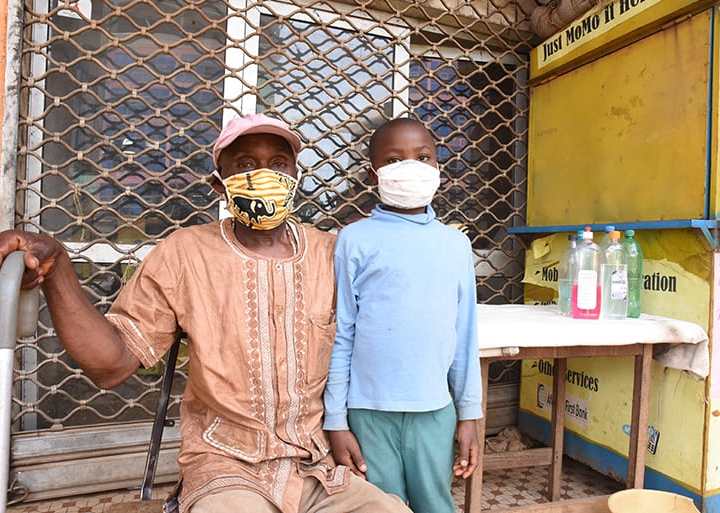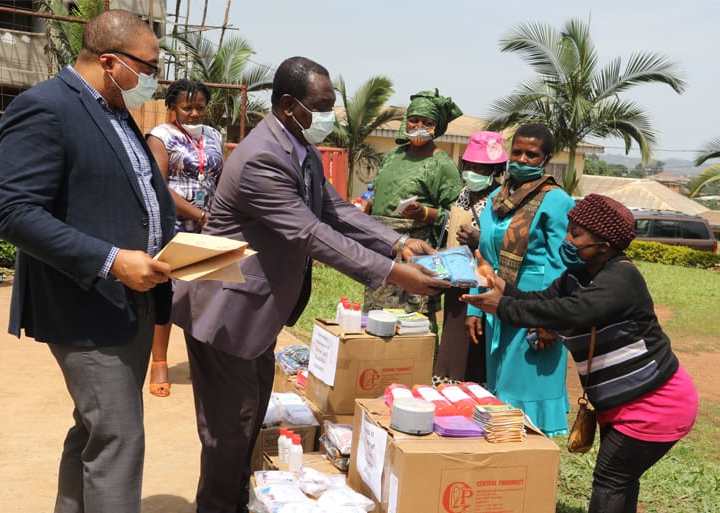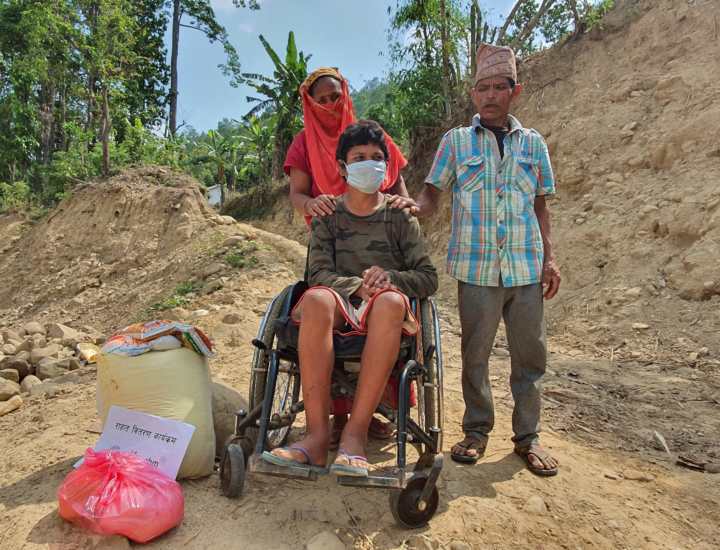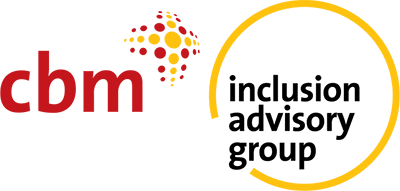CBM Global’s COVID-19 Response
This is a snapshot of the work of CBM Global to date throughout the COVID-19 pandemic.
CBM Global works alongside people with disabilities in the world’s poorest places to transform lives and build inclusive communities, where everyone can enjoy their human rights. We work in three main modalities: through our field programs, advocacy, and advisory work.
Disability and COVID-19
People with disabilities are more likely to: live in poverty, have additional health and other costs, have reduced access to quality education and economic participation, and live in households that are more exposed to economic insecurity.
Inequality arises from a variety of barriers, including stigma, inaccessible infrastructure, transport, information and communication, and a lack of inclusive public services and policies.
The COVID-19 pandemic and its related socio-economic consequences have heightened these barriers. People with disabilities have been disproportionately impacted. There is inequality in access to information about COVID-19, prevention, testing, treatment, social protection as well as other emergency responses. Vital support networks and services have been disrupted by lockdowns. The disability movement has risen to the challenges presented and galvanised into action. CBM Global stands together with the disability movement to prevent rising inequality, to make response and recovery measures inclusive and to ensure people with disabilities are not left further behind. We are working through our field programs, advocacy and advisory work to amplify the disability movement and influence for an inclusive COVID-19 recovery in a range of ways.


Adapting existing field programs
Early in the crisis we quickly worked with existing programs and partners to look at how we could adapt programs to support people with disabilities, their families and communities. Over 60 programs were adapted, including: supporting accessible communication and information about COVID-19, influencing for inclusive COVID-19 responses, ensuring individuals’ access to emergency assistance including cash, hygiene kits and food aid, while supporting health partners to secure supplies, and WASH interventions to be inclusive.
For example: in Kenya we have worked with the government to produce guidance on hygiene for assistive devices in multiple languages, and our Zimbabwe team mobilised to provide unconditional cash assistance to at risk groups. Across Asia, Africa, and Latin America we have adapted our existing community mental health programs to promote well-being and provide mental health and psychosocial support (MHPSS) to the most at risk, including responders.
Humanitarian responses
CBM is co-chair (along with UNICEF and International Disability Alliance) of the Inter-Agency Standing Committee (IASC) Reference Group on Inclusion of Persons with Disabilities in Humanitarian Action.
CBM is co-developing COVID-19 guidance through this group, which is being utilised in country programs. COVID-specific programs were designed, guided by our humanitarian team, with CBM country offices, technical experts, and local partners including the disability movement. Key activities include: working with disability movement partners to influence the broader humanitarian response, supporting inclusive health responses, and working on inclusive cash and other community support initiatives, including Mental Health and Psychosocial Support (MHPSS).
We are refining and evaluating our inclusive cash targeting approach, across our programs, so stay tuned for further evaluation and learning from this.

CBM Indonesia and its partners have supported the Elderly, Disability and other Vulnerable Groups Sub-Cluster to develop Inclusive Communication Guidelines as well as modelling accessible communications, through supporting sign language and easy-read translations of existing COVID-19 resources.
Our advocacy work
At a local, national and international level, CBM Global aims to influence governments and decision makers during the COVID-19 crisis. We are advocating that all COVID-19 response and recovery-planning and high-level dialogue, like those of the UN, include the perspectives of people with disabilities.
We’re advocating for and monitoring the inclusion of disability within the COVID-19 response and recovery investments of government donors, such as the Australian, UK, New Zealand, Irish and Swiss aid programs.
We are maximising our impact through our partners and global alliances like the International Disability and Development Consortium and International Disability Alliance where we are involved in COVID-19 campaigns on accessibility, ending discrimination and amplifying the voices of people with disabilities.
We are working with the World Blind Union to support their national members to analyse key needs, frame advocacy and utilise peer support networks accordingly.
We are capturing the experience of COVID-19 for people with disabilities to help inform future policy and advocacy through research with the UN Stakeholder Group of Persons with Disabilities.
In collaboration with the disability movement and the World Health Organisation, and as co-chair of the IASC MHPSS reference group, we are working to support the integration of MHPSS into COVID-19 responses and the inclusion of people with psychosocial disabilities at every stage, both globally and nationally.
At the country level, advocacy with the Disability Movement is a core component of COVID-19 programs.
For example, in Bangladesh and Nepal, CBM and Disability Movement partners advocated for inclusive information and communication. The Bangladesh program is advocating for continued, safe access to critical support services, such as rehabilitation and psychological support, including through telehealth modalities. In Indonesia we supported a Disability Movement led policy brief which highlighted the risks of COVID-19 to people living in institutions and care homes.
Our advice to others
Our advice to others supports key stakeholders to put inclusion into practice in their COVID responses through the Inclusion Advisory Group and in partnership with the disability movement. Early in the crisis, we published a disability inclusion in COVID-19 technical guidance note, aimed to help agencies ensure that people with disabilities are included effectively in the response, and not discriminated against.
We are supporting the Australian Aid Program to embed disability in its COVID-19 related analysis, response and recovery, including a focus on inclusive social protection with our partner the Centre for Inclusive Policy.
We are supporting a range of partners to work with the disability movement to conduct rapid and ongoing country analyses of the impact of COVID-19 on people with disabilities, and with our research partner, the Nossal Institute for Global Health, to track and synthesise the evidence base on disability and COVID-19.
We are working with the Pacific Disability Forum to adjust and implement their strategy in response to COVID-19, including support to develop issues papers, a communication strategy, and joint advocacy to increase resourcing to DPOs.
We are supporting WASH partners to consider inclusive COVID-19 WASH interventions and key UN partners, such as the UNPRPD with analysis, guidance and on demand support.
Valuable links

As part of our partnership with DFAT we manage a resource platform and help desk and have created a COVID-19 page, where you can find the latest on disability and COVID-19.
